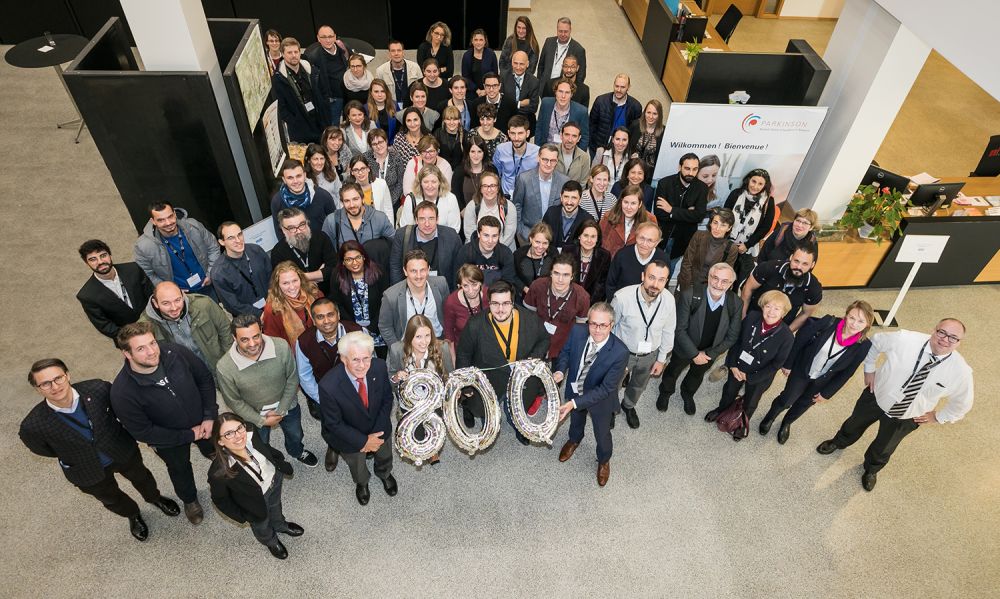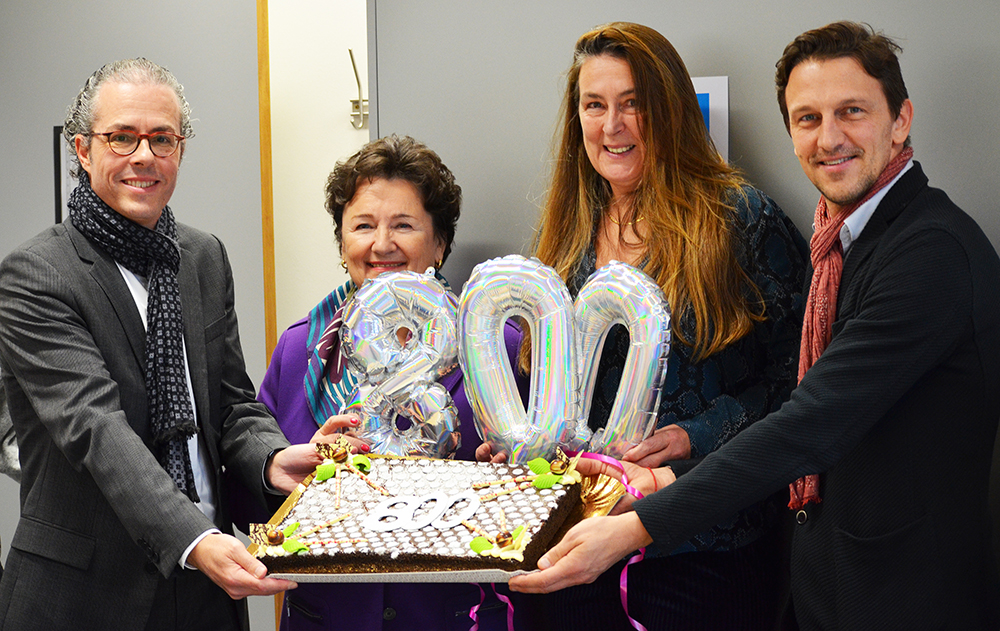In 2015, the ambitious National Centre of Excellence in Research on Parkinson’s Disease (NCER-PD) was launched with the support of the National research Fund (FNR). This research programme brought together research institutions focusing on Parkinson’s disease in Luxembourg, with the aim of answering urgent questions on Parkinson’s disease.
A clinical team set out to recruit hundreds of patients and controls persons for the Luxembourg Parkinson’s Study, and researchers analysed the clinical data and samples collected. Fast forward to the end of 2019, the Luxembourg Parkinson’s Study has reached its ambitious goal: 800 patients and 800 controls have been recruited in Luxembourg and the Greater Region.
Target reached!
In Luxembourg, the number of people with Parkinson’s disease is estimated between 1000 and 1200. “Recruiting 800 patients out of 1200 was a bold objective that we set for ourselves. We are really proud to have reached our target. The whole NCER-PD team did an impressive job! It definitely is an important milestone for the Luxembourg Parkinson’s Study and biomedical research in Luxembourg”, says Prof. Rejko Krüger, coordinator of the NCER-PD.
This would not have been possible without the support of so many people that volunteered their time to participate in the study, all with their very own motivation to do so. Just like the 800th patient and the 800th healthy control who recently joined the study.
“I participated in the Luxembourg Parkinson’s Study in honour of one of my closest friends, who also suffers from Parkinson’s disease. While I am doing quite well since my diagnosis in 2015, his quality of life is severely affected,” says Mr. Pedersen. “We clearly need more research to find out why the disease differs so much from person to person and how to best treat it.”

Ms. Kaesz-Weber, the 800th healthy control, learnt about the Luxembourg Parkinson’s Study thanks to a visit of the labs at the Luxembourg Centre for Systems Biomedicine a few years ago. Afterwards, she mentioned it to one of her friends who has Parkinson’s disease. “My friend was treated at the CHL for three years. I joined her for some of the appointments and saw the neurological tests that were done. It made an impression on me! When we heard about the study again in the media, we were both very motivated to participate. I think it is something we all owe to do. It took us a while to make it happen but, in the end, I joined just in time to be the 800th control!”

As the project is now entering its second phase, the recruitment for this specific group will be slowing down, but follow-up examinations of existing participants will continue: yearly for patients and every four years for controls.
What’s next?
After receiving another 6 million Euro in funding until 2023, the Luxembourg Parkinson’s Study team will establish an additional cohort, meaning a new group of participants, focusing on the early signs of Parkinson’s disease. “For this cohort, we are looking for volunteers affected by a specific sleep disturbance called REM-Sleep Behaviour Disorder (RBD).”
RBD is characterised by acting out dreams in association with complex movements during a sleep phase called REM (sleep phase accompanied by rapid eye movements). This disorder can be treated when appropriately diagnosed. It is of particular interest to the NCER-PD research team as people with RBD have a higher risk of developing neurodegenerative diseases such as Parkinson’s disease on the long run.
By closely examining people with RBD and conducting annual follow-ups, researcher want to investigate early signs of Parkinson’s disease, and look deeper into which factors play a role in its development. It is essential to understand the first signs and evolution in the early phase in order to identify novel disease-modifying treatment options (treatments either slowing down or stopping the neurodegenerative process), and to prevent Parkinson’s disease and neurodegenerative diseases in general.
To find other interviews of study participants, click on the links below:
- Read the interview with the 600th patient
- The 100th NCER-PD patient
- The 100th control person
- The 100th patient recruited by the Flying Team
- The 200th participant




